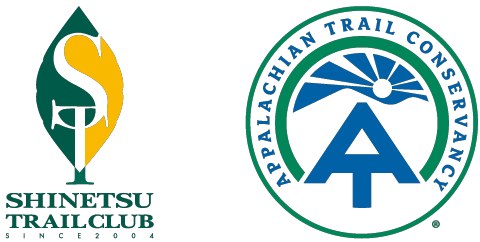- ABOUT
- EXPLORE
- Tips for Hiking the Trail
- General Outlook of the Trail
- Sec.1 (Mt. Madarao - Aka Ike pond)
- Sec.2 (Aka Ike pond - Wakui)
- Sec.3 (Wakui - Hotoke ga Mine Tozanguchi)
- Sec.4 (Hotoke ga Mine Tozanguchi - Sekida Toge pass)
- Sec.5 (Sekida Toge pass - Busuno Toge pass)
- Sec.6 (Busuno Toge pass - Mt. Amamizu)
- Sec.7 (Mt. Amamizu - Mori-Miyanohara Station)
- Sec.8 (Mori-Miyanohara Station - Ketto)
- Sec.9 (Ketto - Koakasawa)
- Sec.10 (Koakasawa - Mt. Naeba)
- Access
- Town Maps
- Visitor Centers
- Guided Hiking
- Stay
- Trail Etiquette
- Hiking Awards
- GET INVOLVED
- NEWS & EVENTS
- FAQ
- Home
- Shin-etsu Trail Trekking Guidelines
Trail etiquette
Shin-etsu Trail Trekking Guidelines
The Shin-etsu Trail Club has established these guidelines for the use of the Trail, so that the precious resources found all along it can be preserved into the future.
01.Stay on the Trail
Taking just one step off the established Trail can mean that plants are trampled. Taking a shortcut off the Trail also is an invitation for an accident, or getting lost. Always stay on the Trail that has been created to protect nature—and you! Don’t use hiking poles when they aren’t needed; when you do, always put on a protective cap (except on totally rocky sections, which are not common on the Trail), and don’t extend the poles outside of the established Trail. Of course, this is different when you encounter snow-covered sections.
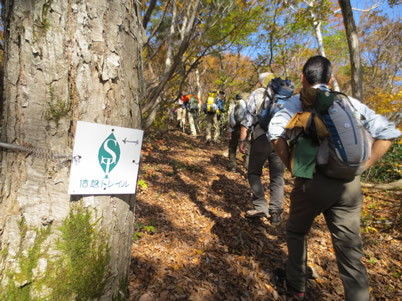
02.Respect plants and animals
Do not pick, touch or capture animals or plants encountered during your hike. Even if you’re particularly interested in flower- or birdwatching or similar activities, do so in a way that doesn’t threaten or hinder the creatures of the Trail. Keep a distance from wild animals, and never give them food. Please refrain from bringing pets onto the Trail.
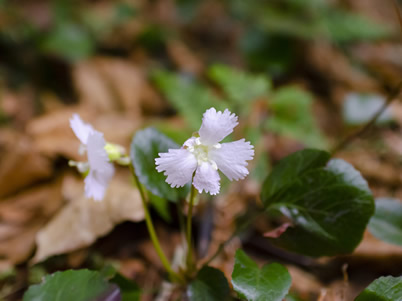
03.Take all refuse with you
Bring anything you discard with you—not just paper and plastics, but leftover food, soup, etc. Do not simply dump or bury these items. There are cases where animals have been killed by ingesting garbage, and feeding animals can result in damage or injury to other hikers, farm fields and the local residents. Smokers should also always bring a portable ashtray with them. And, if you find trash along the Trail, help out! We appreciate your support in bringing out refuse found on the Trail.
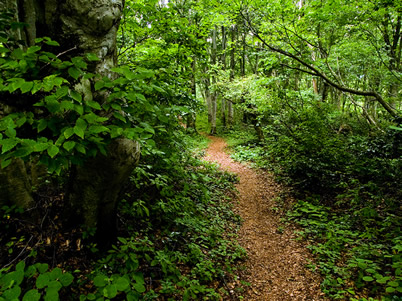
04.Use established toilet facilities
The Shitada Mountains through which the Shin-etsu Trail passes is a source of precious water for a huge area. Improper handling of human waste can have a negative impact on water quality, and have a huge impact on other people, plants and animals—and makes the Trail less enjoyable for others. Whenever possible, use established toilet facilities; if you must, always handle wastes in an appropriate way, at the correct spot. Portable toilets are requested for the handling of solid waste. Do not urinate in wetland areas or in streams, etc. Solid wastes should be deposited in a hole at least 20 centimeters deep, at last 60 meters away from any water source, and completely covered by soil.
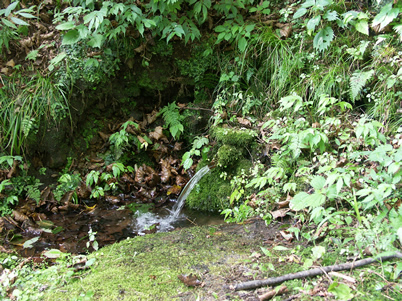
05.Follow all posted rules and regulations
The Shin-etsu Trail covers a long course including many cities, towns and villages. Some areas have specific rules for environmental protection and on Trail usage, such as rules on collecting animals and plants, camping and mountain biking. For more information, check the information boards posted at Trail entrances, the official guide map and the Shin-etsu Trail Club website.
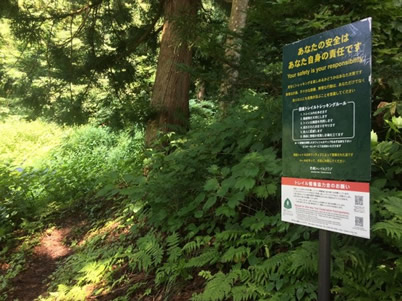
06.Be considerate of others
To help ensure that everyone enjoys their trek on the Shin-etsu Trail, please always be considerate of other hikers and residents. For example, refrain from loud speech or the unnecessary use of loudspeakers; be sure that camera tripods don’t interfere with other hikers. This is not only for your time on the Trail itself; be careful about parking, and don’t enter property without permission at trailheads, in villages, in farm fields, etc., and always try to keep noise down.
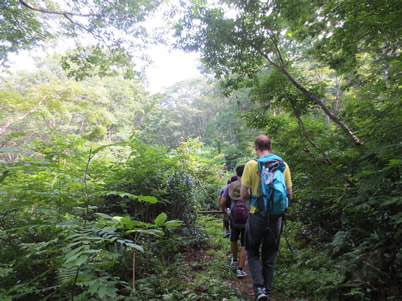
07.Get good information, and create a hiking plan
For a safe and enjoyable hike, contact the Shin-etsu Trail Club well in advance of your schedule trek, tell us about your plans and gather as much information as possible. When you finish your hike, we’d also appreciate it if you’d let the Secretariat know about any abnormal conditions along the Trail.
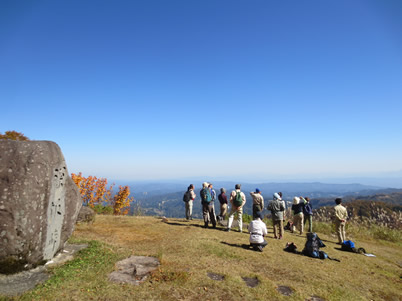
Following these guidelines during your hike sets a good example for others on the best way to enjoy the Shin-etsu Trail. We sincerely appreciate your support, and welcome you to the Trail!


